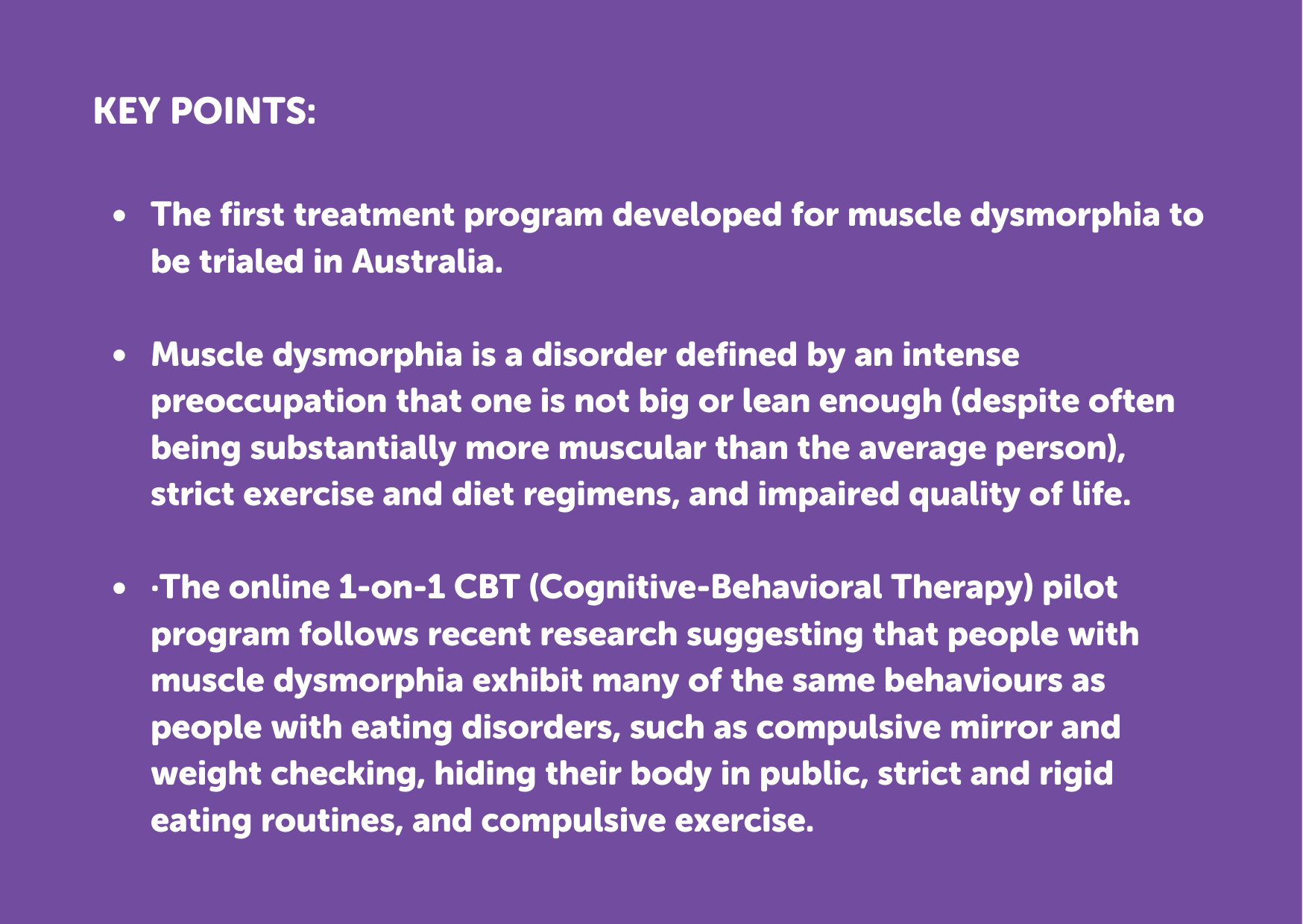
Health
“Gold Standard” eating disorder treatment to be used in Australia’s first ever clinical trial for muscle dysmorphia
5 Jul, 2023
A therapy used to successfully treat eating disorders in adults will form the basis of Australia’s first ever clinical trial for muscle dysmorphia, to be undertaken by InsideOut Institute for Eating Disorders.
Muscle dysmorphia is a mental disorder characterised by an intense preoccupation that one is not big or muscular enough, despite often being significantly larger and more muscular than the average person, resulting in impaired quality of life.
InsideOut Institute Director Associate Professor Sarah Maguire says, “many studies have demonstrated the effectiveness of CBT in other eating disorder diagnoses; it is one of the gold-standard treatments in our field, but has never been applied to muscle dysmorphia despite parallels in illness mechanisms.”
“Given the clinical similarities between muscle dysmorphia and eating disorders, we’re hopeful that a CBT-based intervention should also be effective for people with muscle dysmorphia and open a scientific pathway for clinical trials for this illness in the future,” said A/P Maguire of the University of Sydney.
The online CBT program developed by researchers from The University of Sydney, The University of Melbourne and senior clinical staff in the specialist eating disorder service at Royal Prince Alfred Hospital, will be the first treatment program developed for muscle dysmorphia to date.
Lead researcher Jordan Martenstyn says the eight-week pilot program “represents the first step to helping people with muscle dysmorphia get the treatment they deserve.”
“Although muscle dysmorphia is included in the DSM-5 and is associated with massively reduced quality of life, there is a concerning lack of treatment research on the disorder,” said University of Sydney PhD Candidate and former Personal Trainer Mr. Martenstyn.

Mr. Martenstyn and the team published research in 2022 suggesting that people with muscle dysmorphia exhibit many of the same behaviours and cognitions typically associated with eating disorders.
“We ran a qualitative study exploring the lived experience of 29 individuals with diagnosed muscle dysmorphia and found that like people with eating disorders, people with muscle dysmorphia engage in compulsive mirror and weight checking, often wear baggy clothes in public to hide their bodies, adhere to very strict and rigid eating routines, and compulsively exercise.”
The research undertaken in collaboration with the Physical Appearance Research Team at The University of Melbourne also suggests that people with low self-esteem may be more likely to develop muscle dysmorphia, while social comparison (i.e., comparing your level of muscularity to other people in the gym or on social media) may help maintain the disorder.
The research team are inviting people currently living in Australia who think they might be struggling with muscle dysmorphia to participate in the trial, which will be conducted entirely online via Zoom with the lead researcher Jordan Martenstyn.
“These eight 1-on-1 sessions will be completely confidential and are explicitly focused on helping with muscle dysmorphia improve their quality of life.”
"Participants are invited to express their interest in this 1:1 online CBT pilot program by filling out a brief expression of interest form hereA brief assessment interview will be carried out to determine your eligibility to participate."